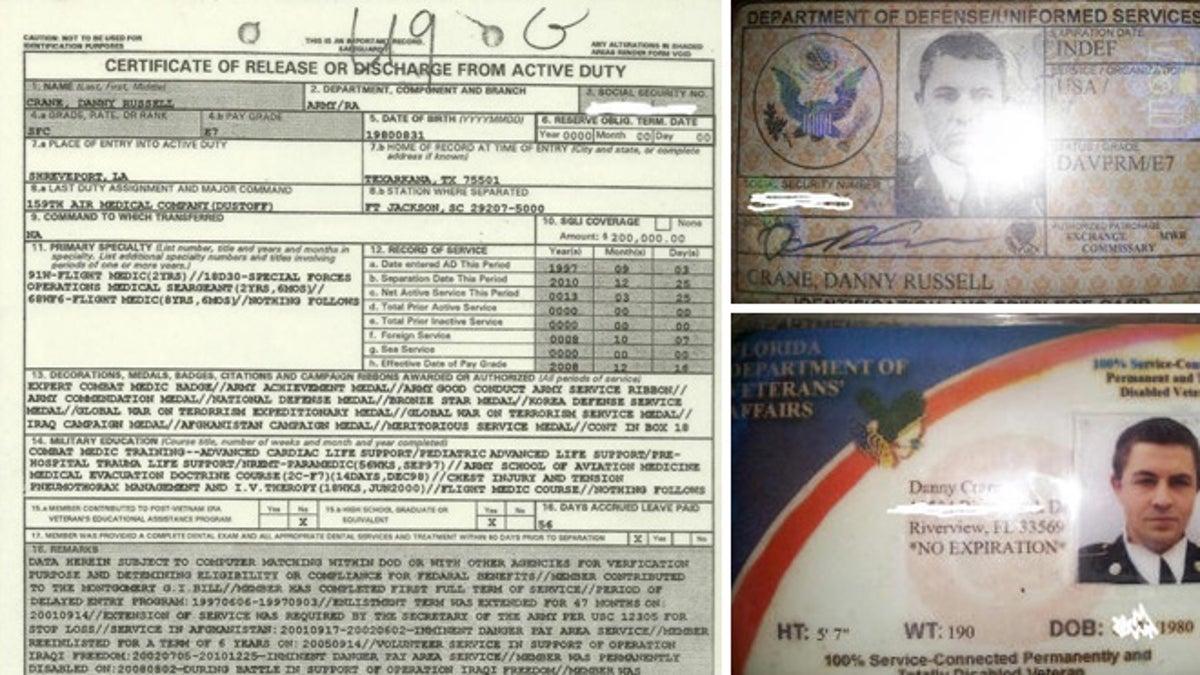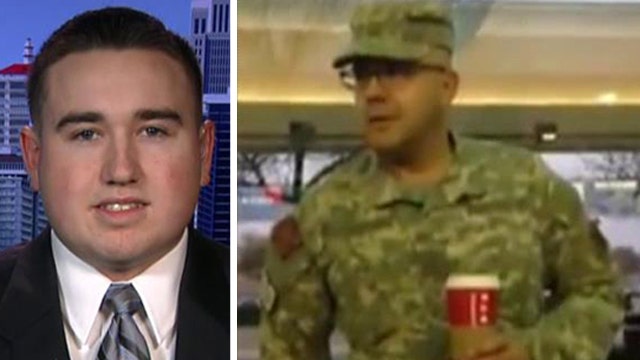Lawmakers in two northeastern states are declaring war on phony veterans who claim combat experience in order to commit fraud.
So-called "stolen valor" laws are not new, and the current federal version was revised after a tougher one was struck down in 2012 by the U.S. Supreme Court. Laws proposed in New Jersey and Massachusetts would go further than Washington's regulation, heaping prison time on those convicted of faking service to the country to gain money or service benefits.
“There are certain areas you don’t go,” Massachusetts State Representative John Velis, a Democrat from Westfield who served tours in Afghanistan. "Any person who has served will tell you that it’s reprehensible when someone fraudulently represents themselves as a veteran for some type of financial gain.”
“People take that uniform and the American Flag very seriously. You don’t get to say you fought for it when you clearly haven’t.”
Velis says his bill would make it a criminal offense to commit an act of stolen valor, carrying at least a year in prison and a $1,000 fine, making it the toughest law in the nation.
“Just because there’s a federal law doesn’t mean that the state should nap on this,” he said. “The fact is that there have been no arrests under the federal law. Understandably, it’s not something at the forefront for the U.S. Attorney’s office. This [state] law will take it a step further to stop those seeking financial gain.”
In December 2006, President George W. Bush signed the Stolen Valor Act, which broadened the provisions of a previous federal law regarding the unauthorized wear, manufacture, or sale of any military medals or decoration and made it a federal misdemeanor to falsely represent oneself as receiving any decoration or medal. But that law was struck down in 2012 by the U.S. Supreme Court, which held that it violated the First Amendment.

(guardianofvalor.com)
“As repugnant as it is, if someone lies about serving for something like a pickup line in a bar, it’s legal under the first amendment,” Velis said. “My law is outside of that realm. The First Amendment does not give you the right to commit fraud.”
In 2013, President Obama signed an amended version of the federal law, making it a crime to falsely claim any military honor with the intent of obtaining money or any other tangible benefit.
Lawmakers on the the New Jersey Senate's Military and Veterans’ Affairs Committee are also seeking stiffer penalties against acts of stolen valor. They recently voted in favor of approving the “New Jersey Stolen Valor Act,” which would make impersonating a veteran or member of the military for obtaining money or other benefits a third-degree crime, in the same category as arson, robbery, drug possession and driving under the influence. A conviction could lead to as much as five years in prison.
Former U.S. Army Sgt. Anthony Anderson, who investigates incidents of stolen valor and maintains the website GuardianofValor.com, said lawmakers in New Jersey reached out to him when they were drafting the bill.
“It was brought to the table after they saw one of our videos,” Anderson said. “Hopefully it will help strengthen the federal law. The way it reads now it’s hard to determine how it should be enforced.”
Anderson is also hopeful that other states will follow New Jersey and Massachusetts’ example and craft stolen valor laws of their own.
“This makes the issue much more visible and state lawmakers will probably come forward with their own bills,” he said.
While their passage is still pending, the laws are bringing attention to a growing problem as veterans from Iraq and Afghanistan have been returning from service.
“People take that uniform and the American Flag very seriously,” Velis said. “You don’t get to say you fought for it when you clearly haven’t.”












































